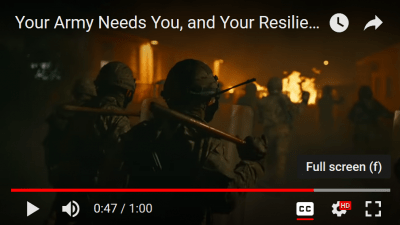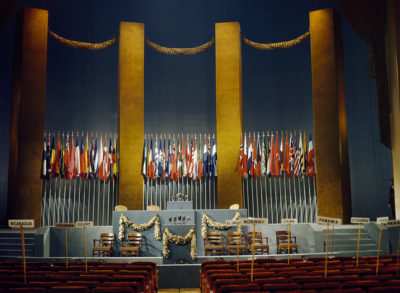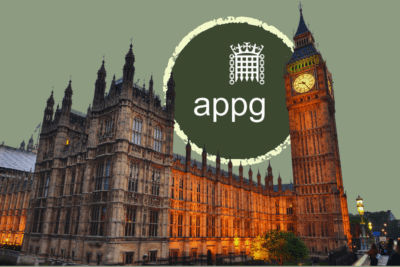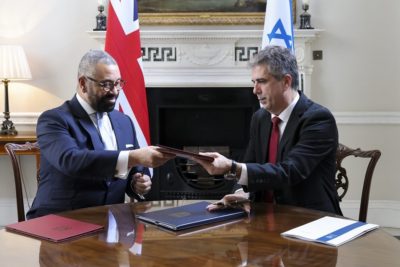Martial Law and No-Deal War Games

Today Sky News reported that preparing for a no-deal Brexit is the ‘highest priority’ of the Ministry of Defence, and that ‘war games’ will be held by the armed forces in the coming days before a cross-government exercise at the end of February.
The military is preparing for disruption from blockages of goods to civil unrest, with soldiers making up the bulk of 3,500 personnel on standby for no-deal duties.
The most extreme reporting of potential military responses to a no-deal, from numerous media channels and newspapers, has suggested that martial law could be declared in the event of civil unrest.
While it is widely reported that Brexit planners are looking at the possibility of martial law, there have been no reliable projections yet about the likelihood of it occurring.
Given the sensationalism attached to some of the more click-hungry reportage we have seen, we thought it worth examining what martial law would actually entail.
Martial law, which is generally defined at the military taking control of the normal functions of the state, is more commonly associated with authoritarian and repressive regimes in the ‘developing world’.
Recent examples of large-scale military intervention in the running of nation-states includes those declared in areas of the Ukraine and the Philippines in 2018 and Turkey in 2016 following an attempted coup.
Any UK iteration of martial law would almost certainly be based on the 2004 Civil Contingencies Act, which contains a number of provisions for times of national crisis such as that which some fear may occur in the wake of an exit from the European Union.
Civil Contingencies Act 2004
This act was brought into power by the 2004 Labour government. The new legislation followed a series of crises, including the Foot and Mouth epidemic of 2001 and the fuel protests of 2000. Existing Civil Defence and Emergency Powers legislation was deemed to be outdated and was superseded when the CCA gained Royal Assent in November 2004.
What could happen?
The government could decree that the military stepped in to carry out a wide range of roles which would normally be the job of civilian authorities.
What would the military do?
In the event of civil unrest following Brexit the military could step in to:
- Occupy urban areas
- Protect key facilities like hospitals and power stations
- Carry out checkpoints
- Stop and search for anyone suspected of fomenting rebellion
- Stop protests from happening
- Enforce curfews
- Enforce travel bans
- Confiscate property
- Hold special tribunals
- Detain without trial or charge
- Limit the powers of the press to report the news
We have been monitoring and commenting on the ways in which the military seeks to further its power within UK society, often for recruitment or defense spending reasons or to promote itself more generally. (See this quick introduction to current militarism in everyday life and also the report Warrior Nation.) The imposition of any kind of martial law would massively overshadow these developments and would fundamentally change the relationship between the state, the armed forces and the general public.
While public opinion is generally supportive of the armed forces, this could rapidly change if any attempt to suspend civil law was made. We think it very unlikely that the government would risk this in anything but the most extreme circumstances. It is, however, alarming that it has been raised as a possibility, even within the context of frantic political manoeuvering.
What is clear is that thousands of troops, including Reservists, will be mobilised in case of a no-deal Brexit for ‘a range of tasks including reinforcing existing army operations, liaising with other authorities and providing specialist skills. They will also be sent to help at regional command centres and tasked with implementing no-deal preparations being carried out by other government departments.’ We wait to see what this means in practice.
In the meantime, the military’s no-deal Brexit ‘war games’ should be considered in light of the fact that British troops have rarely engaged in domestic public order in the last hundred years, except in Northern Ireland – although today happens to be the centenary of Bloody Friday when soldiers and tanks were deployed to quell protesting workers in Glasgow on 31 January 1919. Of course, they have been used to put down civil unrest in multiple other countries. The problem is that ‘using the same organisation for national law enforcement as that trained and used for fighting wars against foreign armies’ can go badly wrong – as seen in the Peterloo Massacre of 1819 – helpfully depicted very recently on film. Furthermore, as mentioned above, bringing the armed power of the military home and pitting it against civilians is sure to see its popularity dissolve.
Re reports that mandarins are gaming troops on streets to quell disorder after ‘no deal’ Brexit – army doesn’t have the training at present.
Has skills overseas, but capability in domestic setting lost post NI
Army & defence insiders I’ve spoken to in past weeks v cold on idea
— Lucy Fisher (@LOS_Fisher) January 27, 2019
It is expected that the military would be reluctant to take up this role. But should the military develop capacity and begin more training for managing domestic civil disorder, this would be of serious concern and point again towards an increasingly militarised nation. We noted that this year’s Army recruitment campaign videos included footage of troops resisting rioters.
With increasing talk of putting the troops on the streets in the case of a no-deal Brexit, even extending to talk of martial law, we think it worth revisiting the words of Sir Nick Harvey, Minister for the Armed Forces in 2011 in response to calls for the Army to be deployed on the streets in response to rioters.
‘[T]hink about the signal that putting the Army on the street sends?
It means one of two things has happened.
Either the police have been so overwhelmed by endemic disorder or factional unrest that emergency measures are required to protect people, in other words, a social collapse.
Or the government has lost its legitimacy, lost its popular support, lost its right to rule and rebellion even revolution is on the cards, in other words, a political collapse.’
Is this where we are today?
See more: military in society,
Like what you read?
> Sign up for our newsletter or blog notifications
> Support our work – from just £2 a month










